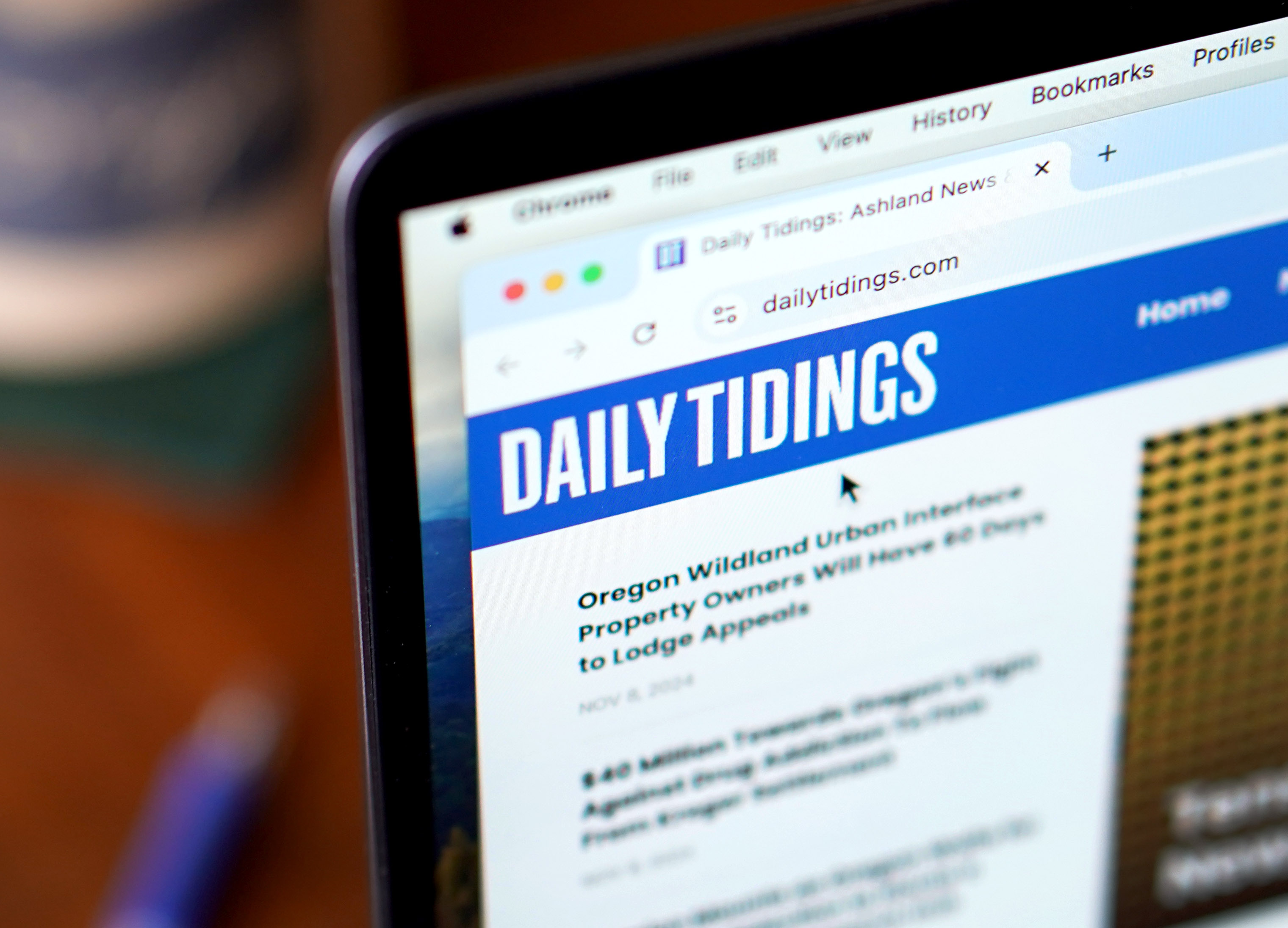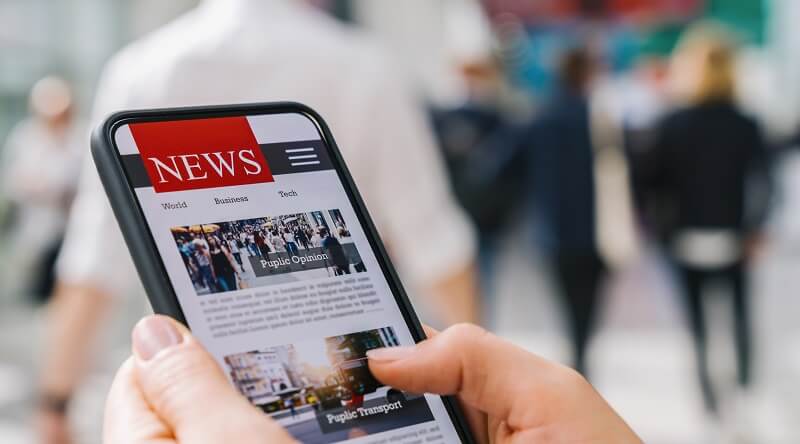The Value of Fact-Checking worldwide of News Online
The prevalence of misinformation in today's online news landscape has actually gotten to startling degrees. Fact-checking organizations play an essential role in counteracting this pattern. They confirm claims and boost the integrity of journalism. Nevertheless, the effectiveness of these companies typically rests on their approaches and public assumption. As audiences navigate this complicated atmosphere, the implications of their findings may form the future of news usage and count on. What does this mean for the integrity of details moving onward?

The Rise of Misinformation in the Digital Age
Just how has the development of electronic innovation added to the spread of misinformation? The rapid growth of the internet and social media sites platforms has actually assisted in the dissemination of info at an extraordinary rate. Individuals can share write-ups, videos, and viewpoints with a mere click, frequently without validating the web content's precision. Formulas prioritize mind-blowing or psychologically billed product, resulting in a proliferation of misleading narratives that record focus.
Furthermore, the anonymity managed by electronic systems permits people to spread false info without liability (stnews.live). Misinformation thrives in echo chambers, where individuals are subjected mainly to point of views that enhance their ideas, even more lodging frauds. The saturation of details can bewilder customers, making it testing to determine credible resources from unreliable ones. As a result, misinformation has actually become a prevalent concern in the electronic landscape, affecting public viewpoint and trust fund in genuine news resources
The Role of Fact-Checking Organizations
Fact-checking companies play an important function in enhancing the integrity of journalism by verifying insurance claims made in news reports. Their initiatives are essential in combating false information, making sure that precise information dominates in the digital landscape. By holding media electrical outlets responsible, these companies contribute significantly to notified public discussion.
Enhancing Trustworthiness in Journalism
While false information multiplies in the electronic age, fact-checking organizations play an important function in enhancing the reputation of journalism. These organizations meticulously confirm cases made in newspaper article, public statements, and social networks messages, making certain that details shared to the public is exact and reliable. By giving independent evaluations, they offer as an essential source for reporters, aiding them preserve high criteria of stability. Furthermore, their initiatives advertise openness in media, fostering public trust fund. As target markets come to be significantly discerning, the existence of reputable fact-checking entities can distinguish reputable news sources from those that might spread out falsehoods. Inevitably, the commitment of fact-checking companies to support truthfulness is essential for the health and wellness of democratic discussion.
Combating Misinformation Effectively
As false information remains to spread out quickly across digital platforms, the duty of fact-checking organizations ends up being significantly critical in the battle for exact info. These organizations offer as watchdogs, inspecting insurance claims made by public numbers and media electrical outlets to guarantee accountability. By employing extensive study techniques and professional analysis, they validate truths and clarify misleading narratives. Their searchings for are disseminated with various networks, informing the general public and promoting essential thinking. On top of that, partnerships with social media platforms improve their reach, permitting for punctual flagging of incorrect information. As digital proficiency expands, the impact of fact-checking companies is essential in equipping target markets to determine fact from fallacy, inevitably adding to an extra enlightened culture.
Just How Misinformation Affects Public Perception
Misinformation significantly weakens count on media, leading audiences to doubt the trustworthiness of news sources. Therefore, individuals usually move in the direction of outlets that enhance their current beliefs, adding to the polarization of viewpoints. This vibrant creates a fragmented details landscape, where shared understanding ends up being progressively difficult to accomplish.
Count on Media

Trust fund in media has become increasingly fragile in the digital age, where the quick spread of false information can skew public understanding. As misinformation proliferates throughout social media and on-line systems, target markets typically find it testing to recognize qualified sources from undependable ones. This unpredictability fosters hesitation, leading lots of individuals to question the motives behind news coverage. Count on in established media electrical outlets has actually reduced, as consumers progressively transform to alternate resources that might do not have rigorous editorial criteria. This disintegration of trust not only impacts specific ideas yet likewise weakens the cumulative capability to take part in educated conversations. Inevitably, the stability of journalism is at risk, highlighting the critical requirement for reliable fact-checking to restore confidence in the media landscape.

Polarization of Viewpoints
The enhancing skepticism towards standard media has actually contributed to an expanding polarization of point of views among the public. Misinformation, usually shared via social media sites and online platforms, plays a significant duty fit distinct ideological separates. Individuals regularly look for out information that lines up with their pre-existing ideas, strengthening their point of views while dismissing opposing viewpoints. This echo chamber result increases divisions, bring about a fragmented public discourse where agreement becomes progressively evasive. Additionally, sensationalized narratives flourish in this setting, additionally skewing public perception and promoting question in credible resources. As polarization escalates, the requirement for reliable fact-checking becomes vital to connect voids and promote educated discussions, eventually making certain a more natural culture with the ability of steering complex concerns.
Techniques for Efficient Fact-Checking
Effective fact-checking depends on an organized method that consists of extensive research study, confirmation of sources, and important evaluation of claims. A foundational technique is cross-referencing information from several legitimate sources to verify its precision. Fact-checkers usually utilize specialized databases and archives to trace the beginning of certain statements, guaranteeing that the reported info straightens with documented evidence.
Another vital approach includes scrutinizing the go now context in which insurance claims are offered. Deceptive information can emerge from out-of-context quotations or careful information use. By taking a look at the broader narrative, fact-checkers can recognize possible biases or false impressions.
Involving with professionals in appropriate areas can give clarity and understanding that improves the fact-checking procedure. This cooperation can reveal nuances that laypeople might overlook - stnews.live. Ultimately, a self-displined approach integrating these techniques cultivates a much more informed public, improving the dependability of details distributed in the electronic age
The Impact of Social Media Site on News Consumption
Just how has social media sites changed the way people consume news? The introduction of platforms like Facebook, Twitter, and Instagram has significantly modified news intake patterns. News is currently shared rapidly, enabling users to access real-time updates and involve with web content via sort, shares, and remarks. This immediacy has actually fostered a choice for bite-sized info, typically at the expenditure of thorough analysis.
Social media makes it possible for individualized news feeds, where formulas curate material based on customer preferences, producing resemble chambers that might limit exposure to varied viewpoints. The function of traditional news electrical outlets has actually reduced as people increasingly rely on peer suggestions and trending topics. Subsequently, the integrity of info is frequently jeopardized, as sensationalism can outweigh factual reporting. Overall, social media has improved news usage, highlighting speed and personalization while testing the requirements of journalistic integrity.
Empowering Audiences to Determine Trusted Sources

Additionally, checking out the authorship and business background of news write-ups can expose potential prejudices. Cross-referencing information across several credible electrical outlets even more improves the verification procedure. Utilizing electronic tools, such as internet browser expansions that rank the trustworthiness of web sites, can also assist in recognizing credible details. By actively engaging with these sources and growing a critical mindset, you can check here target markets can much better equip themselves to recognize trusted news resources, inevitably fostering a more enlightened culture in the middle of the intricacies these days's media atmosphere.
The Future of Journalism and Fact-Checking
As the media landscape advances, the future of journalism and fact-checking faces both tests and opportunities. The surge of digital platforms has actually equalized details dissemination, permitting varied voices to emerge. Nonetheless, this has likewise brought about the proliferation of misinformation, demanding durable fact-checking devices. Reporters will progressively count on innovation, including AI tools, to validate realities swiftly and effectively.
Cooperation between news companies and fact-checking entities is prepared for to reinforce integrity and openness. In addition, audience involvement will play a crucial duty, as informed readers become considerable partners in determining reliable material.
The demand for accountability and precision is most likely to grow, pressing reporters to maintain high standards in their reporting. Ultimately, the future of journalism may depend upon its ability to adjust to technical innovations while maintaining journalistic integrity, making certain that fact-checking stays a keystone of reputable news.
Often Asked Questions
Exactly How Can I Report False Information I Encounter Online?
To report misinformation experienced online, people can make use of platform-specific reporting tools, give clear proof, and share the information with fact-checking companies. Involving with area conversations can also help elevate recognition regarding the misinformation.
What Prevail Signs of False Information in News Articles?
Usual indications of false information in news articles include spectacular headlines, lack of credible resources, emotional language, irregular facts, and lack of writer credentials. Viewers need to critically evaluate material for these indicators to recognize precision.
How Do Fact-Checkers Validate Resources?
Fact-checkers validate resources by cross-referencing details with credible databases, speaking with experts, and examining the original context of cases. They also assess the moved here dependability of the resources, making certain precise and credible information for public intake.
What Legal Actions Can Be Taken Against Misinformation?
Lawful actions against misinformation may consist of libel suits, cease-and-desist orders, and regulatory charges. Sufferers can prosecute with civil courts, while some territories impose fines or sanctions on systems distributing incorrect details.
Exist Apps for Fact-Checking News On-The-Go?
Countless applications exist for fact-checking news on-the-go, including Snopes, FactCheck.org, and PolitiFact. These applications aid individuals confirm claims rapidly, promoting informed decision-making and promoting a more critical technique to consuming news in real-time.